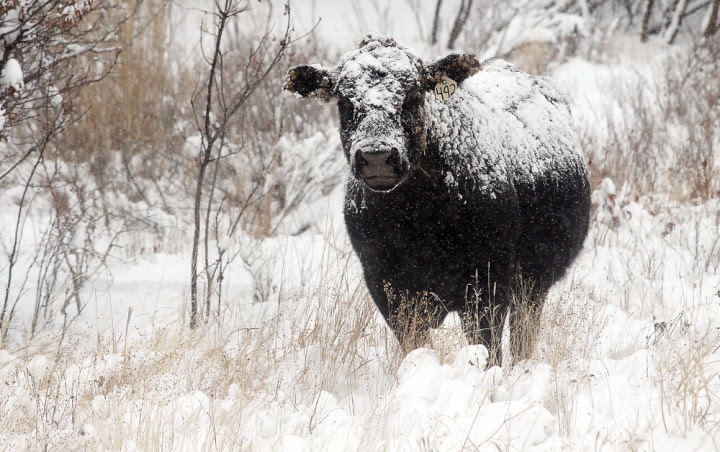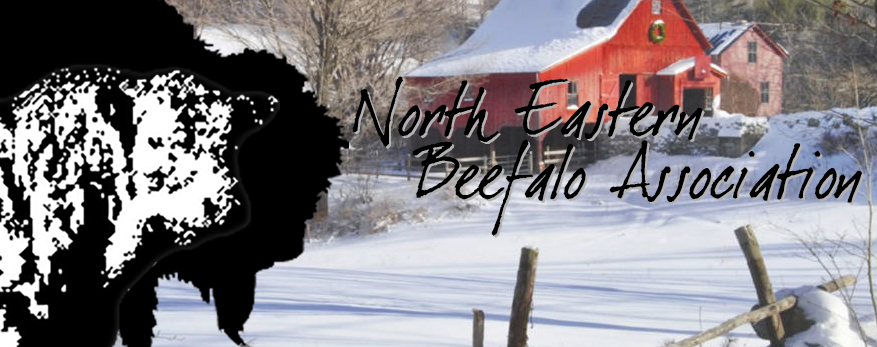|
The article below is from Hobby Farm Blog. There are many ways you can keep your livestock happy during the worst of winter. By keeping them happy, they’re also more likely to be healthy and healthy animals produce more for your farm or ranch.
1. Always Have Water Available Cattle often struggle to get enough water during the winter. Water sources can freeze or are impossible to get to because of snow, ice or mud. Veterinarians say that each day cattle need between 1 and 2 gallons of water per 100 pounds of weight. That makes water an important resource in any weather condition, winter or not. A novice livestock manager may assume that cattle can eat snow or lick ice to reach their normal limit, but that’s simply not the case. Doing so would take hours and reroute valuable body heat, leaving little time or energy to feed and grow. Since dehydrated cattle are more at risk for colic and impaction, it’s important to maintain their water uptake and keep them healthy. The easiest solution is to install tank heaters in their water sources. When you do, make sure to follow manufacturer instructions to avoid accidental shocks or fires. If you can’t use a heater, be able to provide unfrozen water several times a day and in multiple locations. By ensuring a regular water source, even when temperatures plummet below freezing, your cattle will continue to thrive — a key sign of a happy animal. 2. Keep Cattle Well Fed Do cattle get cold? They do if they aren’t fed well enough! That’s why it’s important to maximize food delivery during cold weather. Without enough energy, they can’t generate enough body heat, their core temperature drops and death could follow. To keep your cattle well-fed and happy during the winter, there are a number of options. The easiest, but often most expensive option, is to switch to a feed with increased nutrients. These premium feeds deliver guaranteed nutrients, including fat and protein, but can wreak havoc on the profits of your operation. Another option is to find ways to feed cattle while limiting waste. Avoid scattering feed hay on the ground where as much as 50% of it can go to uneaten. Instead, deposit hay in a hay feeder or other similar shelter – just make sure there’s enough feeders for all your cattle to feed at once and without forcing any animal to wait its turn. Your best option pays off the most. Try to maintain a few fields of cold-hardy grass that your cattle can graze through the winter, even with snow on the ground. Early in the season, use rotational grazing to section off a paddock or two with your electric fencing. In it, grow a tall, highly-nutritious grass that will peak out from under a heavy snow. With the proper training on how to reach the partially buried grass, your cattle will be happy to spend a chilly winter day on the range. 3. Provide Proper Shelter Life on the pasture is normally pretty good. Lots of food and plenty of space, but when a winter storm comes roaring in, getting to safety becomes top priority. Without it, cattle can stress over their well-being and panic. Providing proper shelter for grazing cattle during cold weather is critical and can even reduce your feed costs, since chilled livestock will have increased energy requirements. Shelter can be provided in a variety of ways. Three-sided sheds placed throughout your pastures will allow cattle to escape harsh weather. Hills, gullies, thickets of trees and shelterbelts can also work as wind breaks. It’s also important to pay attention to the weather forecast. When you know there’s a winter storm coming, it’s best to keep cattle close to the barn or near a shelter. That’s one of the benefits of temporary electric fencing – you can control where your cattle are at all times. 4. Avoid Mud Winter mud hits cattle in two ways. First, mud is the perfect breeding ground for foot rot and thrush. Secondly, it can be challenging for cattle to stay warm when they are caked in mud, even if the mud is only on their legs. To keep cattle happy in the winter, address your mud issue by adding gravel or woodchips to muddy areas. You may also benefit from rotational grazing to limit the chances of an overgrazed pasture turning into mud. Your electric fencing can also be used to allow muddy fields an opportunity to recover. 5. Assist Pregnant Cattle Pregnant cattle should be carefully monitored through the winter. Check with your veterinarian about any specific vaccinations they may need to keep them healthy through the winter, including nutritional supplements and deworming. Pay special attention to them through harsh weather, too. They need to be shielded from extreme temperatures and they have easy access to food and water, regardless of how deep the snow is. Remember a healthy, well-fed mother is going to pay big dividends later on. In fact, segregating pregnant cows into paddocks for close monitoring is always helpful. Doing so allows you to provide them with the right nutrition, water and shelter. Also, it keeps them close as they approach their due date. That allows you to be on scene and properly equipped to help during delivery. 6. Keep Cattle Comfortable Beyond all the efforts listed above, there are additional ways to bring comfort to your cattle, winter time or not.
4 Comments
The earlier the better is the best method for halter breaking any calf. It's really important for them to get used to you touching them, so begin right at birth. It really helps if you have a cow that will allow you near her as well, because it will be in her nature to let you near her calf. So it is important to select Beefalo that you can work with easily from the start.
Let us know if you have any tricks to halter breaking your calves in the comments below. If you are looking for Beefalo calves as 4-H students or for other show purposes, visit the "Beefalo For Sale" page for a list of current Beefalo calves for sale.
|


 RSS Feed
RSS Feed
